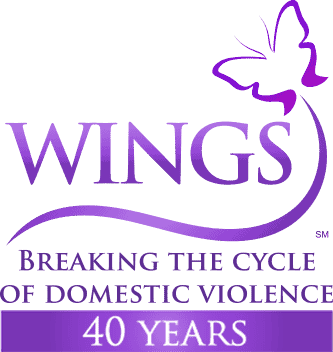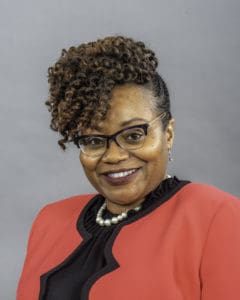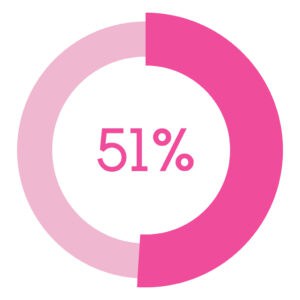Her Voice, Their Voices: Black Women & Domestic Violence
- Posted by Sarah Swiston
- On June 21, 2024
- Black Women & Domestic Violence, Chicago, chicago metropolitan area, Chicago suburbs, Domestic Violence, domestic violence agency, domestic violence and African American women, DV and black women, dv survivors, End Domestic Violence, microaggressions, Mother's Day, non-profit agencies, northwest chicago, racism, unheard survivors, WINGS, WINGS Program
Guest Blogger: La Tonya Walker, WINGS Chief Program Officer
La Tonya Walker, WINGS Chief Program Officer, recently wrote this piece for the Illinois Coalition Against Domestic Violence website titled, “Her Voice, Their Voices: Black Women & Domestic Violence.” Read the powerful message below published in May.
Where to Start?
Restless nights, I have toiled repeatedly regarding a subject this month. What could be significant and important enough for that draws individuals, that inspires, that heals?
According to the “Today Show,” May has over 150 holidays and observances. Maybe the focus should be Asian American and Pacific Islander individuals, Mental Health Awareness, Brain Injury Awareness.
Honestly, Mother’s Day is the first topic that came to mind, followed by the number of tragic deaths victims of intimate partner violence have endured, just this year. Should the focus be Mother’s Day? Maybe it’s too obvious and cliché. Yet there is a topic so visible, so painful, so pertinent and unspoken to many survivors.
Startling Data
According to the National Network to End Domestic Violence, 45.1% of Black Women have experienced domestic violence. Even more astounding is that an estimated 51.3% of Black female homicides are related to Intimate Partner Violence.
The Illinois Coalition Against Domestic Violence began using the Intercultural Development Inventory (IDI) which intrigued me. It is an assessment tool that assesses one’s perspective towards differences and commonalities and provides a development plan to gain a deeper understanding and awareness of strengths and opportunities to grow and develop organizational capacity.
Little did I know during this introductory process that the preparation and planning would not only open my eyes and push me to be bold in discussions on injustice, inequity, and lack of inclusion for people of color. I speak boldly on behalf of the 45.1% Black female survivors and the 51.3% of homicide victims.
Let Us Recognize
Now, without going into detail of numerous shared stories and to protect the confidentiality of those who have offended, let us recognize the daily taxation of safety, of the mind and of the spirit.
As I write this, I also unfortunately recognize that in protecting shared stories, I am still protecting those who have caused harm. It stings that I do so to the detriment of my own personal hurts. I do not carry this burden alone.
Multiple women of color also carry this heavy torch, but this is who we are. WE will hurt and bury our pain to protect the majority, to save face, and to not have yet another stigma added to our resume.
Microaggressions, Blatant Racism and Being Unheard
I come as someone competent in my life’s work of almost 30 years. Daily, African Americans are faced with microaggressions, blatant racism and being unheard. Research by the National Library on Medicine, Boston University, BMC Public Health, and the Commonwealth Fund has placed a spotlight on the medical treatment of African American women in medical settings. But please note that it is not only in the medical field that we are unheard, it also trickles to other aspects of life.
It is every day, at the grocery store, at work, the bus stop and the PTA meeting.
This daily occurrence also affects someone you work with, attend church with, see at the mall and yes, your African American friends and colleagues.
As we approach Mother’s Day, think of the many microaggressions that persons of color in our domestic violence field experience, couple that with the trauma clients come with.
Add onto that the disparity in pay, housing discrimination, lack of medical insurance, inadequate medical care, limited seats in leadership or legislative table, as well as insufficient business ownership and no generational wealth.
Survivors of color have a LOT. They are often not only caregivers of their children, but of parents, siblings, and sometimes serve as the neighborhood mom.
Now that you have that picture, think of the amount of abuse and the years of trauma by the person who was to love them compiled with the hand’s society puts on them daily.
My Wish
My one wish for Mother’s Day is to recognize all our contributions to the above and choose to be different.
It is recognizing the heavy lift to get up in the morning, be strong for children, fight through this world of inequities. Let us not minimize their aches as phantom pains.
Take time to release, to lend grace, to smile at someone who really needs it, to ask how someone is doing and truly care and listen to the response even if it makes you uncomfortable. And finally, to use those things and encourage those around you to do the same.
Tanara Burkes writes “There are few things more painful than watching the folks you love and depend on not actively love you back. Especially when they are not outwardly unkind or distant or they have spoken words that sounded like love and have provided support that could be construed as love without understanding the kind of love you need and deserve.”
During this month of May, the month with over 150 holidays and observances, make a choice and be intentionally kind, speak supportive words, give the love and care African American women need and deserve.
Always In Service,
Chief Program Officer, WINGS Program, Inc.





0 Comments